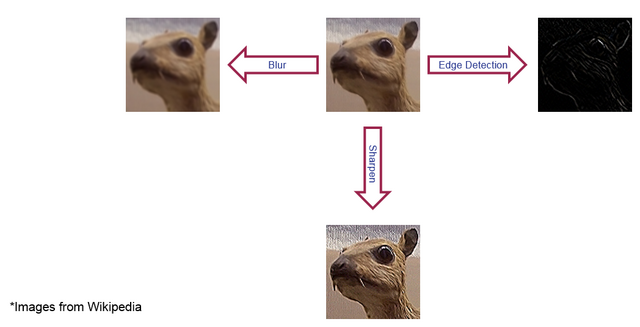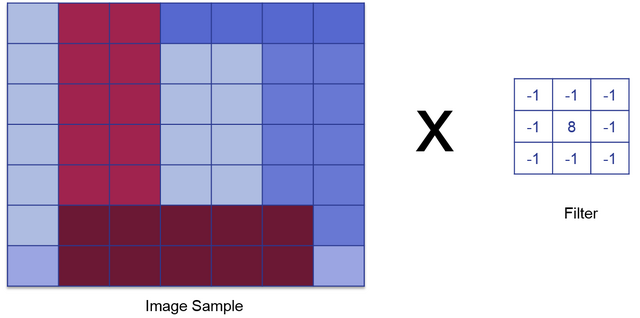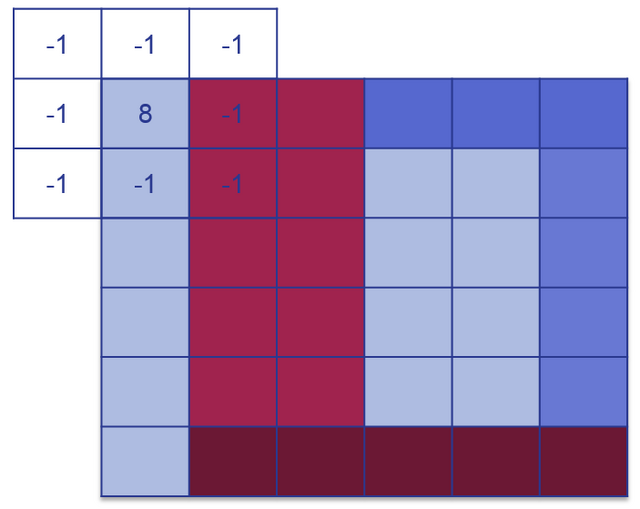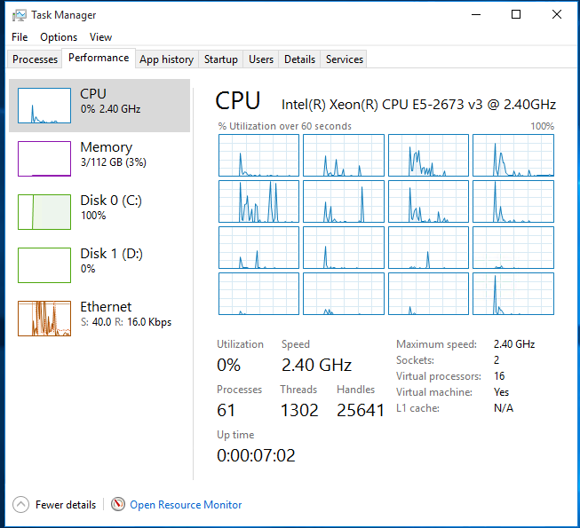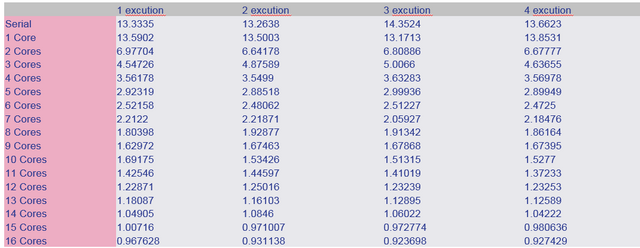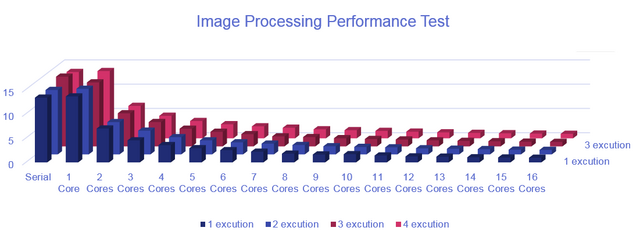Team Lion
GPU621/DPS921 | Participants | Groups and Projects | Resources | Glossary
Contents
Image Processing Performance Using Parallel Programming
This assignment introduces simple image processing using MPI parallel programming. This assignment also explains about performance comparison from 1 core to 16 cores.
Team Lion Member
Byungho Kim
Basic Concept of Image Processing
- Convolution between image and filter(kernel)
- Each processing of pixel independent from another pixels
- Can be used for Edge finding, Blur and image enhancement.
Convolution
Edge Handling
All pixels in edges need special treatment.
- Extend
- Tile
- Crop
False Sharing Consideration
- Threading each pixel – The worst
- Threading each row – Good
- Threading multiple rows band – The best
Test Environment Consideration
- How to test performance more than 4 cores computer.
Azure VM Environment
- Cloud service from Microsoft
- You can rent many kind of Virtual Machines.
- Access remotely using Windows Remote Desktop Connection.
Test Result
Conclusion
- Performance depends on number of cores.
- OpenMP is easy to use. Much easier than normal(POSIX) Thread method.
Source Code
#include "corona.h"
#include <omp.h>
#include <iostream>
#include <cstdlib>
corona::Image* calcConvolutitonSerial(corona::Image* image, const float* kernal, const int kernalSizeWidth, const int kernalSizeHeight) {
int width = image->getWidth();
int height = image->getHeight();
unsigned char* pixels = (unsigned char*)(image->getPixels());
corona::Image* result = corona::CloneImage(image);
unsigned char* resultPixels = (unsigned char*)(result->getPixels());
for (int py = 0; py < height; py++) {
int pixelIndex = 0;
int targetPixelX = 0;
int targetPixelY = 0;
for (int px = 0; px < width; px++) {
float accuR = 0;
float accuG = 0;
float accuB = 0;
float accuA = 0;
for (int kernalY = 0; kernalY < kernalSizeHeight; kernalY++) {
for (int kernalX = 0; kernalX < kernalSizeWidth; kernalX++) {
targetPixelX = px - kernalSizeWidth / 2 + kernalX;
if (targetPixelX < 0) targetPixelX = 0;
else if (targetPixelX >= width) targetPixelX = width - 1;
targetPixelY = py - kernalSizeHeight / 2 + kernalY;
if (targetPixelY < 0) targetPixelY = 0;
else if (targetPixelY >= height) targetPixelY = height - 1;
pixelIndex = (targetPixelY * width + targetPixelX) * 4;
accuR += pixels[pixelIndex++] * kernal[kernalY * kernalSizeWidth + kernalX];
accuG += pixels[pixelIndex++] * kernal[kernalY * kernalSizeWidth + kernalX];
accuB += pixels[pixelIndex++] * kernal[kernalY * kernalSizeWidth + kernalX];
}
}
pixelIndex = (py * width + px) * 4;
if (accuR > 255) accuR = 255;
else if (accuR < 0) accuR = 0;
resultPixels[pixelIndex++] = accuR;
if (accuG > 255) accuG = 255;
else if (accuG < 0) accuG = 0;
resultPixels[pixelIndex++] = accuG;
if (accuB > 255) accuB = 255;
else if (accuB < 0) accuB = 0;
resultPixels[pixelIndex++] = accuB;
}
}
return result;
}
corona::Image* calcConvolutitonParallel(corona::Image* image, const float* kernal, const int kernalSizeWidth, const int kernalSizeHeight, int requestedCore) {
int width = image->getWidth();
int height = image->getHeight();
unsigned char* pixels = (unsigned char*)(image->getPixels());
corona::Image* result = corona::CloneImage(image);
unsigned char* resultPixels = (unsigned char*)(result->getPixels());
omp_set_dynamic(0);
omp_set_num_threads(requestedCore);
#pragma omp parallel
{
int tid = omp_get_thread_num();
int nt = omp_get_num_threads();
int jumpRange = height / nt;
for (int py = jumpRange * tid; py < jumpRange * (tid + 1) && py < height; py++) {
int pixelIndex = 0;
int targetPixelX = 0;
int targetPixelY = 0;
for (int px = 0; px < width; px++) {
float accuR = 0;
float accuG = 0;
float accuB = 0;
float accuA = 0;
for (int kernalY = 0; kernalY < kernalSizeHeight; kernalY++) {
for (int kernalX = 0; kernalX < kernalSizeWidth; kernalX++) {
targetPixelX = px - kernalSizeWidth / 2 + kernalX;
if (targetPixelX < 0) targetPixelX = 0;
else if (targetPixelX >= width) targetPixelX = width - 1;
targetPixelY = py - kernalSizeHeight / 2 + kernalY;
if (targetPixelY < 0) targetPixelY = 0;
else if (targetPixelY >= height) targetPixelY = height - 1;
pixelIndex = (targetPixelY * width + targetPixelX) * 4;
accuR += pixels[pixelIndex++] * kernal[kernalY * kernalSizeWidth + kernalX];
accuG += pixels[pixelIndex++] * kernal[kernalY * kernalSizeWidth + kernalX];
accuB += pixels[pixelIndex++] * kernal[kernalY * kernalSizeWidth + kernalX];
}
}
pixelIndex = (py * width + px) * 4;
if (accuR > 255) accuR = 255;
else if (accuR < 0) accuR = 0;
resultPixels[pixelIndex++] = accuR;
if (accuG > 255) accuG = 255;
else if (accuG < 0) accuG = 0;
resultPixels[pixelIndex++] = accuG;
if (accuB > 255) accuB = 255;
else if (accuB < 0) accuB = 0;
resultPixels[pixelIndex++] = accuB;
}
}
}
return result;
}
int main() {
corona::Image* image = corona::OpenImage("sample.jpg", corona::PF_R8G8B8A8);
if (!image) {
return 1;
// error!
}
int width = image->getWidth();
int height = image->getHeight();
void* pixels = image->getPixels();
float Laplacian9x9Kernal[] = {
0, -1, -1, -2, -2, -2, -1, -1, 0,
-1, -2, -4, -5, -5, -5, -4, -2, -1,
-1, -4, -5, -3, -0, -3, -5, -4, -1,
-2, -5, -3, 12, 24, 12, -3, -5, -2,
-2, -5, -0, 24, 40, 24, -0, -5, -2,
-2, -5, -3, 12, 24, 12, -3, -5, -2,
-1, -4, -5, -3, -0, -3, -5, -4, -1,
-1, -2, -4, -5, -5, -5, -4, -2, -1,
0, -1, -1, -2, -2, -2, -1, -1, 0 };
double start;
double end;
start = omp_get_wtime();
corona::Image* resultImage = calcConvolutitonSerial(image, Laplacian9x9Kernal, 9, 9);
end = omp_get_wtime();
std::cout << "Serial processing time = " << end - start << std::endl;
//corona::SaveImage("resultSerial.png", corona::FF_AUTODETECT, resultImage);
for (int coreNumber = 1; coreNumber <= 16; coreNumber++) {
start = omp_get_wtime();
resultImage = calcConvolutitonParallel(image, Laplacian9x9Kernal, 9, 9, coreNumber);
end = omp_get_wtime();
std::cout << "Parllel processing time (" << coreNumber << " core(s)) = " << end - start << std::endl;
}
//corona::SaveImage("resultParallel.png", corona::FF_AUTODETECT, resultImage);
}